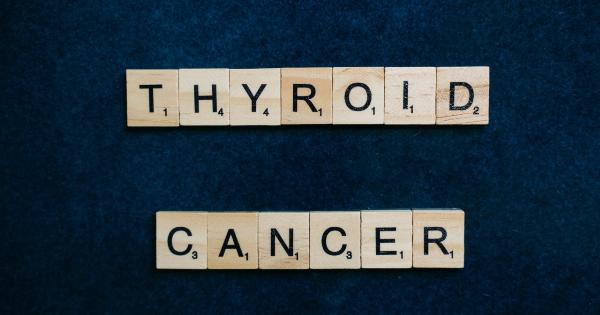The thyroid gland is a small, butterfly-shaped organ located in the front of the neck. It produces hormones that regulate metabolism and other essential bodily functions.
However, in certain cases, thyroid diseases or conditions may necessitate the removal of all or part of the thyroid gland. This surgical procedure is known as thyroidectomy. While it may be a necessary intervention, it is important to understand the pros and cons of thyroidectomy before undergoing the procedure.
Pros of Thyroidectomy
1. Treatment for Thyroid Cancer
One of the primary reasons for thyroidectomy is the treatment of thyroid cancer. By removing the affected thyroid tissue, the procedure can help eliminate or reduce the spread of cancerous cells.
It offers a chance for a complete cure, particularly in early-stage thyroid cancers.
2. Resolution of Hyperthyroidism
Hyperthyroidism is a condition where the thyroid gland produces an excessive amount of hormones, leading to various symptoms such as weight loss, rapid heartbeat, and anxiety.
Thyroidectomy can effectively resolve hyperthyroidism by removing the gland responsible for overproduction. It provides a long-term solution and can significantly improve the patient’s quality of life.
3. Relief from Large Goiters
A goiter is an enlarged thyroid gland that can cause discomfort, difficulty swallowing, or breathing problems. When a goiter becomes excessively large or causes severe symptoms, thyroidectomy may be necessary to relieve these issues.
The removal of the goiter can alleviate pressure on surrounding structures, providing relief to the patient.
4. Management of Benign Thyroid Nodules
Thyroid nodules are abnormal growths within the thyroid gland. While most nodules are non-cancerous, they can still cause symptoms such as difficulty swallowing or breathing.
Thyroidectomy can effectively remove problematic nodules, providing peace of mind and eliminating the need for ongoing monitoring and testing.
5. Prevention of Recurrent Thyroid Conditions
In certain cases, a chronic or recurring thyroid condition may require thyroidectomy to prevent further complications or health issues.
By removing the thyroid gland, the chances of future thyroid problems, such as recurrent thyroiditis or nodules, can be significantly reduced.
Cons of Thyroidectomy
1. Surgical Risks
As with any surgical procedure, thyroidectomy carries inherent risks such as bleeding, infection, and adverse reactions to anesthesia. Although these risks are typically low, it is important to discuss them with the surgical team beforehand.
Choosing an experienced surgeon can help minimize these risks.
2. Hypothyroidism
Thyroidectomy involves the removal of the thyroid gland, which results in the permanent loss of thyroid function. This leads to a condition called hypothyroidism, where the body produces an insufficient amount of thyroid hormones.
Hypothyroidism requires lifelong hormone replacement therapy to maintain proper hormone levels.
3. Voice and Parathyroid Complications
The thyroid gland is located near the vocal cords and parathyroid glands, which control calcium levels in the body.
During thyroidectomy, there is a risk of damaging the vocal cords or parathyroid glands, leading to temporary or permanent voice changes or calcium imbalances. Skilled surgical techniques can help minimize these risks.
4. Scar Formation
Thyroidectomy involves a surgical incision in the front of the neck, resulting in a visible scar. While efforts are made to minimize scarring, the size and appearance of the scar can vary.
It is important to discuss scar management options with the surgeon to reduce the visibility of the scar.
5. Long-Term Medication Dependency
After thyroidectomy, individuals with hypothyroidism need to take daily hormone replacement medication for the rest of their lives.
This dependency on medication can be seen as a disadvantage, as it requires consistent adherence and regular monitoring of hormone levels to ensure optimal health.
Conclusion
Thyroidectomy is a surgical procedure with both pros and cons. It can be a life-saving treatment for thyroid cancer, provide relief from thyroid-related symptoms, and prevent the recurrence of certain thyroid conditions.
However, it’s essential to consider the potential risks, such as surgical complications, hypothyroidism, voice changes, scar formation, and medication dependency. Consulting with healthcare professionals and understanding individual circumstances are crucial steps in making an informed decision about thyroidectomy.




























